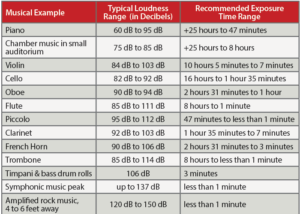Excerpted from How to Play Madison Square Garden: A Guide to Stage Performance, (Not More Saxophone Music Inc., 2011) by Mindi Abair, member of Local 47 (Los Angeles, CA), Lance Abair, and Ross Cooper.
The first 10 seconds are the most crucial to winning over an audience. How you walk onto the stage is important. It gives the audience an idea of who and what is important. If you walk onto the stage initially looking at the other band members and their equipment, it appears that 1) you think you are more important than the audience or 2) you are ignoring the audience. If you walk onto the stage immediately looking out into the audience to see everyone, you convey the impression that you can’t wait to become friends with everyone. This immediately gives the audience a feeling of importance, and ultimately causes them to like you from the very beginning.
The best way to prepare for walking onto the stage is to have all of your equipment, microphones, guitars, drumsticks, etc. ready so that you can pick them up and/or put them on without even thinking about it. This enables you to be free to check out the audience from the first step you take on stage, and this starts the show off in the most personal and effective way possible. You’re confident, ready to give as a performer, and this is your time. Look them straight in the eyes, and then rock them!
Nothing Succeeds Like Success
Walk on stage as if you own it and you belong there. Exude confidence and success. Don’t confuse the terms confidence and success with cockiness. Cocky people are generally not well liked. On the other hand, people don’t want to follow someone who appears to be unsure of themselves or worse, a loser. They will follow a winner anywhere. A great smile will do wonders. It imparts the feeling that, “I know what I’m doing. I’ve done it a million times before. Come along with me. This is going to be great!”
Be You
One of the difficulties in explaining the best way to meet the audience is that performance styles can be so wildly different. For example, the high energy rock group KISS comes out blasting and uses a lot of intricate lighting and pyrotechnics. On the other end of the spectrum, jazz singer Norah Jones comes out performing a more low-key, sensitive marriage of music and lyrics. These two approaches are completely different, but they are completely correct for each act. The higher-power rock group needs to establish themselves as such. The warm and smooth singer-songwriter needs to likewise establish the environment and level of intimacy that facilitates the best possible presentation of his or her material.
The important thing to consider is how you and your group intend to meet the audience. Do your best to make a statement regarding who you are. Establish your character very early, and you will be able to take the audience on a journey from there.
Many years ago a famous R&B singer-songwriter, who had a number one hit song on the Billboard charts, was performing a live concert. After the house lights were dimmed and the singer took the stage, the audience went wild. They were anxious to hear some of the most brilliantly executed R&B music of the day. Instead of playing R&B, this artist started playing old standard songs, as if he were the piano player in a nightclub lounge. The crowd was forgiving, however, they were a bit disappointed. The expectation that a certain character would emerge from the stage at the outset didn’t happen. Once again, establish your true character early so you can move to take the crowd on a journey. Don’t start off on a tangent. You can journey toward this, but a tangent should never start or end a show.
After you have played your opening musical segment, the audience will applaud. Respond to the audience’s applause by thanking them and by making a statement that will help to establish the tone of the show for the night.
You Control the Show
Control of the show is a simple concept that can either make you or break you. Part of any successful relationship is knowing who’s in charge. You are in charge. There are no exceptions to this hard and fast rule. You should be in control of a number of things, including the overall feel of the show, the content, the amount and quality of interaction with the audience, and even the pacing of the show. You should always go in with these things in mind. Even though it is the audience who is buying the tickets, you should realize that they are paying you to be in charge.
Actors are always taught to never break character and to never allow hecklers or interruptive elements of any type to break their concentration and performance. As musical performers, somehow that’s never taught to us! But the concept works for any type of performer. Is there someone in the audience who is yelling out a request for a song continually? Is it distracting people from what you’re doing on stage? Is it distracting you from what you are doing? Move the show along. Don’t lose sight of what you’re on stage to do.
Apply and maintain pressure on the audience. Audience pressure is created when the performer’s actions on stage compel the audience to become interested and involved. The opposite of pressure, “dead air,” where the audience loses interest with what’s happening on stage, should be avoided at all cost.



